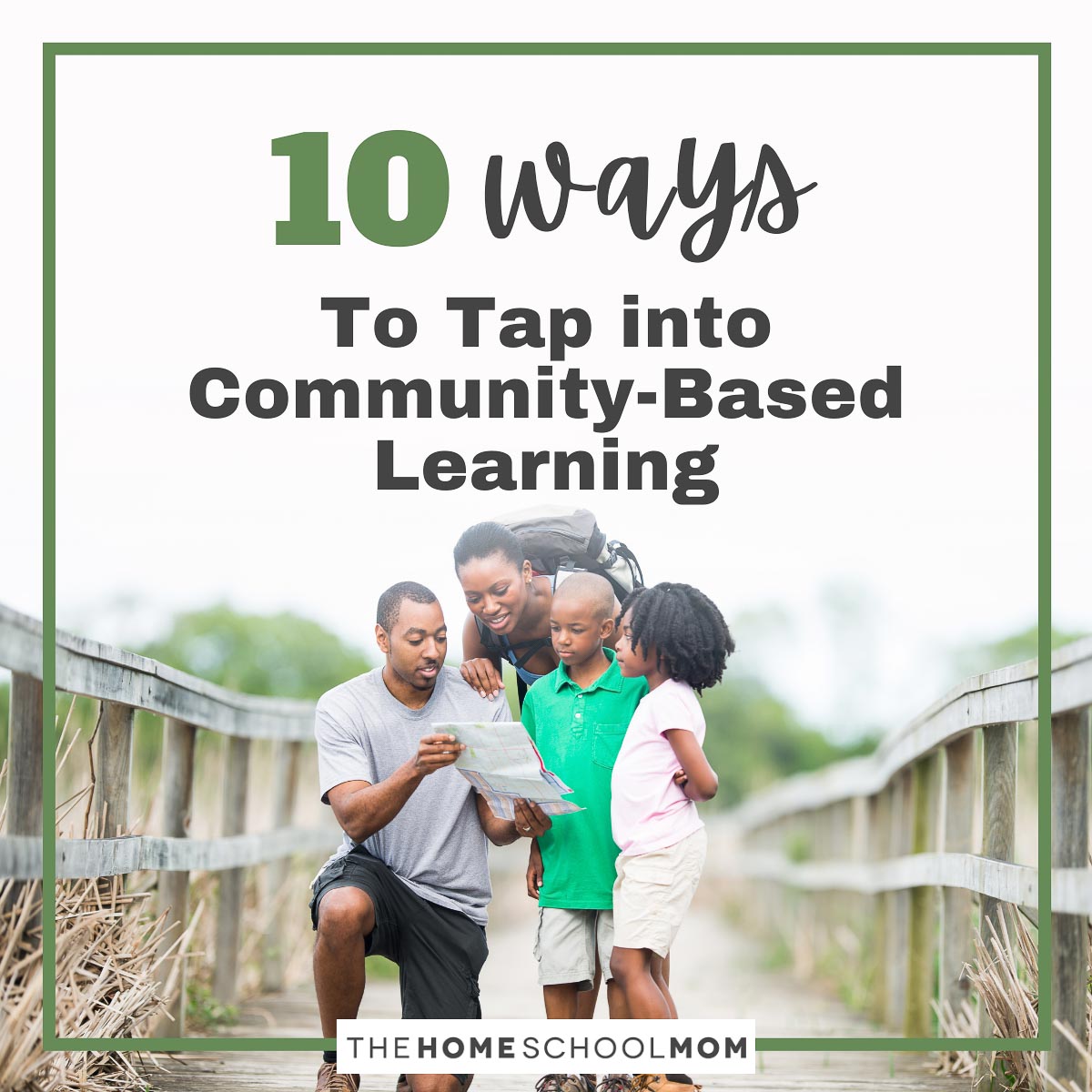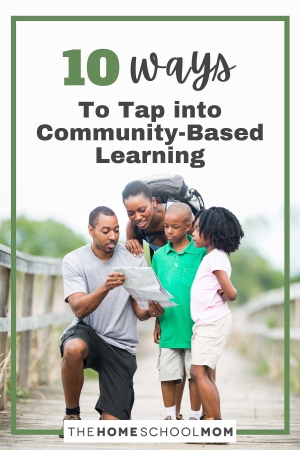This post is contributed by Oak Meadow, the sponsor of our Living Education series.
Now more than ever, homeschoolers are looking to emerge from their homes and engage with the community around them. Whether you are new to an area, a temporary resident, or a lifelong inhabitant, learning about the place you live can lead to all sorts of new opportunities and adventures in learning. Here are 10 simple ways to start using your community to enliven your life and learning.

1. Go nuts about nature.
Set up weekly or monthly explorations outside and get to know your local parks and hiking trails. Even if you aren’t particularly outdoorsy, you can visit overlooks and viewing platforms, or even just peek over the rail of a footbridge to observe the water below. Depending on individual temperaments and the mood of the group, you can have treasure hunts (find one species of plant that you’ve never seen before, or find something blue) or challenges (try to walk silently through the woods so you can observe animals before they run away). Or you might just choose a spot to sit and soak in the tranquility of the setting.
2. Meet mentors.
Seek out adults who share your child’s passions, and facilitate a connection. Most people love to talk about what they are interested in. Some might eventually become mentors, but even a brief conversation can let your child envision what it might be like to engage in their favorite interest or activity on an adult or professional level.
3. Trek about town.
Every community has a variety of organizations, events, and activities, many of which are free or low cost. Look in the local paper, on bulletin boards around town, and keep your eyes open for notices of performances (often free to the public) from groups involved in circus arts, dance, theater, and music.
4. Love the library.
A homeschooler’s best friend, libraries have loads of free stuff, including organized groups and events, museum passes, lectures, movie nights, and language learning programs. Librarians are also excellent resources for community information and connections.
5. Indulge your interests.
Whatever interests you and your children have, you can bet there is a group: singing, acting, cycling, woodcarving, folk dancing, reading, fiber arts, gaming, model building—you name it! If you live in a rural area, you might find online groups or make a monthly trek into a nearby town for some facetime with like-minded people.
6. Hang out with history.
Does your town have a historical society? They are treasure troves of information and artifacts about your town. Also, check out the library, town hall, or city hall to look for old photos of the area and the people who lived there when the town was young. If your children seem uninterested in grainy black and white photos of people long gone, help them notice details of clothing, implements, transportation, and signs that show what life was like long ago. This can be fun when combined with learning about family history.
7. Mine the museums.
Natural history museums, science museums, and art museums often have rotating or visiting exhibits. Get on the mailing list for your local museums so you can keep informed about upcoming exhibits and events. Many museums have a free day once a month, which makes this a very budget-friendly source of enrichment and inspiration.
8. Appreciate art.
Many towns have regular artwalks where businesses display the work of local artists, whose work often includes elements of science, history, and geography. Don’t worry if you don’t know much about art—you don’t have to be an art critic or an art lover to appreciate art. Experience it, spend time viewing and discussing it, and see where it takes you.
9. Uncover the urban landscape.
Cities are fascinating collections of architecture, parks, sculptures, fountains, storefronts, and signs. The opportunities for exploring are endless. If you are a city dweller or live nearby, plan some city excursions where the only thing on the agenda is to explore.
10. Share stories with seniors.
Visit or volunteer at a local nursing home or eldercare center. Ask those who have lived in your community for years to tell you all about it. They can tell you many interesting things that would take you years to discover on your own.




 Enjoy these posts from the pages of Living Education, the seasonal journal from our contributing sponsor,
Enjoy these posts from the pages of Living Education, the seasonal journal from our contributing sponsor, 
Leave a Reply